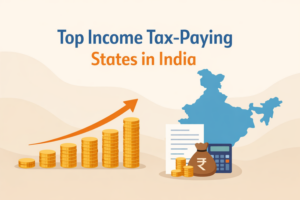What is Double Taxation Avoidance Agreement (DTAA)?

Taxes, let’s face it, are complicated. And things get a lot more difficult if your income is taxable in two countries instead of one. Double Taxation Avoidance Agreement (DTAA), a tax treaty signed between two countries with active trade and diplomatic relations, helps individuals avoid paying taxes twice. India has signed DTAA agreements with some 85 countries, wherein NRIs and investors are saved the hassle of paying double taxes—in nations where they work and invest and in their home country. Essentially, the DTAA income tax treaty is a boon for Indian citizens who earn income outside their country’s borders.
DTAA rates
India has signed DTAA agreements with several countries. These agreements set a specific tax rate that must be deducted from income earned by people living in those countries. This implies that the TDS that applies to NRIs who generate income in India will be determined by the rates outlined in the Double Tax Avoidance Agreement.
How do we determine if DTAA is applicable?
Follow these steps to find out if the Double Taxation Avoidance Agreement (DTAA) applies:
- Pick out the countries: Find out which country the individual lives in and from which country he/she earns income. Check to see if the two countries have a DTAA between them.
- Ascertain the residency status: Ascertain where the person lives for tax purposes. This is very important because DTAAs usually apply to people who live in one or both of the contracted states.
- Type of income: Name the exact kind of income you have, such as a salary, business income, interest, profits, fees, capital gains, etc. DTAAs often treat different types of income in different ways.
- Read over the DTAA income tax rules: Get your DTAA facts right. Read over the laws that apply to the type of income in question. Some essential things to read are those that talk about business profits, earnings, interest, fees, capital gains, and income from jobs. Find the definitions, the reach, and the limits.
- Make sure you look for specific conditions and exemptions: List any restrictions, limits, or exceptions that might apply. Learn about any time limits, required length of stay, or other special rules mentioned in the DTAA.
- Check out the reliefs offered: Find out which type of relief the DTAA income tax treaty offers. Find out how the clause is used in both countries.
- Compliance and documentation: Ensure you follow both tax rules about what documents you need to keep. Fill out and sign any forms or statements that are required in order to get benefits under DTAA India.
How to apply DTAA?
It is essential to check the DTAA rules between your home country and the country where your business is based to avail the benefits of a Double Taxation Avoidance Agreement (DTAA). Non-resident Indians (NRIs) who want to claim NRI taxation benefits in India for taxes paid outside of India must take these steps and provide the following papers to the Indian tax authorities:
- Checking your eligibility to receive benefits under the DTAA India is the first step. It’s usually necessary to be a tax resident of one of the countries that signed the deal.
- The tax officials of the country where you live should give you a Tax Residency Certificate. This license shows that you live in the country and is eligible to get DTAA income tax benefits.
- Along with the TRC, you need to fill out Form 10F, which asks for information like your name, country, tax ID number, and proof that you are a resident. This form is essential to give the Indian tax authorities the information they need.
- Gather all the necessary proofs, like income bills, payment records, and anything else the Indian tax officials might ask to back up your DTAA claim.
- Send the filled-out Form 10F to the Indian tax officials, with the TRC and any other supporting papers. Fill out all forms correctly and make sure the information given is correct to avoid delays.
- After sending in your application, check back with tax officials to learn the status. You should be prepared to give more information or clarification if asked.
How to claim DTAA benefits?
You can avail many benefits from the DTAA as an Indian citizen. A few examples are listed below:
1. Tax Credit
Taxpayers can get a tax credit for taxes they paid in other countries that they owe in their own country. It keeps people from having to pay the same tax twice. So, the Double Taxation Avoidance Agreement makes it easier to start a business abroad and send the money to the home country. Thanks to this deal, you won’t have to pay taxes twice on the same benefit.
2. DTAA TDS rates go down
Withholding tax (TDS) rates often go down because of the DTAA deal. Interest, profits, and loyalty payments sent from outside of India to Indian citizens may be charged at a lower rate. This is good for investors and service providers.
3. Gives legal certainty
According to the DTAA income tax treaty, there are clear rules on how to pay taxes on foreign income, which makes the law more certain. This legal security also makes emerging countries more likely to invest in other countries.
Example of DTAA
Puja invests in US stocks and earns a dividend that is taxed at the rate of 25% in the US. For instance, if a company declares a dividend of say, $200, you will receive $150 in your account after the TDS of $50 is charged. In addition, she will have to pay tax on the US dividend in India too, as dividend income is taxable from the financial year 2020–21.
But Puja need not worry. Because India and the United States are signatories to the Double Taxation Avoidance Agreement (DTAA).
The DTAA treaty allows Puja to balance her tax liability in India against her dividend tax deducted in the US. So Puja will be able to adjust the tax paid in the US and adjust it with the tax liability in India under the India USA DTAA.
A few basic principles of DTAA
India is a fast-growing large economy and DTAA India, or Double Taxation Avoidance Agreement, is signed with more than 80 countries. They include the United States, Canada, the United Kingdom, Australia, and the United Arab Emirates, all of which are developed nations. Here are some basic principles of DTAA:
- Residents of countries that are part of the DTAA don’t have to pay taxes twice. Certain types of double taxation can be avoided by not taxing income made outside of the home country or by giving credits for taxes already paid abroad.
- The DTAA income tax treaty also offers lower rates in some situations.
- Even honest investors may be tempted by DTAA to put their money in low-tax countries to avoid paying taxes.
Section 89A introduced in Budget 2021
The Finance Act of 2021 introduced Section 89A to help non-resident Indians who had a hard time as they were taxed twice on money held in foreign retirement accounts in specified countries. The new section sought to address the issue of double taxation for Indians who have earnings abroad.
Countries that India has a DTAA with
India has chosen a path of economic unity and teamwork, with an increasing number of DTAA income tax treaties in place. This has made it easier for India to trade, invest, and strengthen ties with other countries. India and 85 other countries made a deal to avoid double taxation. Here is a list of the countries with which India has signed the DTAA:
- Armenia
- Austria
- Australia
- Bangladesh
- Belgium
- Belarus
- Botswana
- Brazil
- Bulgaria
- Canada
- Cyprus
- China
- Czech Republic
- Denmark
- Egypt
- Ethiopia
- Estonia
- France
- Finland
- Georgia
- Greece
- Germany
- Hashemite Kingdom of Jordan
- Hungary
- Iceland
- Ireland
- Indonesia
- Israel
- Italy
- Japan
- Kazakhstan
- Kenya
- Kuwait
- Korea
- Kyrgyz Republic
- Libya
- Luxembourg
- Lithuania
- Malaysia
- Mauritius
- Malta
- Mongolia
- Morocco
- Montenegro
- Mozambique
- Myanmar
- Namibia
- Nepal
- New Zealand
- Netherlands
- Norway
- Oman
- The Philippines
- Portuguese Republic
- Poland
- Qatar
- Romania
- Russia
- Saudi Arabia
- Singapore
- Serbia
- Slovenia
- South Africa
- Sri Lanka
- Spain
- Sudan
- Sweden
- Swiss Confederation
- Syrian Arab Republic
- Tajikistan
- Tanzania
- Thailand
- Trinidad and Tobago
- Turkey
- Turkmenistan
- UAE
- UAR (Egypt)
- UGANDA
- UK
- Ukraine
- United Mexican States
- USA
- Uzbekistan
- Vietnam
- Zambia
- Uzbekistan
- Vietnam
- Zambia
On what type of income DTAA is applicable?
Various types of DTAA can be executed based on the volume of trade and diplomatic relations between the two countries involved. They are as below:
– Bilateral treaties
A bilateral treaty, as the name suggests, is a deal between two countries. For example, the DTAA between India and the USA.
– Multilateral treaties
A multinational treaty is signed by more than one country. An example of this is the Convention between the APAC and SAARC countries. Several countries have signed a multilateral convention on tax laws. For all countries that have signed the multilateral convention, the current treaties have been altered or changed.
– Tax Information Exchange Agreements (TIEA)
The OECD’s TIEA program aims to stop lousy tax habits like global tax abuse, business tax dodging, and illegal financial flows. Through the sharing of information about people who don’t pay their taxes, these deals make it easier for countries to work together and be open with each other. TIEA can be either global or individual.
– Limited Agreements
These DTAAs only cover certain types of income. For instance, India and Pakistan’s DTAA income tax treaty only lets residents of both countries make money from shipping and flight business.
– Comprehensive Agreements
Most of the time, comprehensive DTAAs cover all the types of income that are mentioned in any model standard. Most of the DTAAs that India has signed are all-encompassing.
Conclusion
DTAA income tax treaties are significant in a world that is becoming more globalized where people and businesses operate across countries. These deals, which were once just ways to save on taxes, have become very important in promoting international trade, investment, and cooperation.
Disclaimer
The stocks mentioned in this article are not recommendations. Please conduct your own research and due diligence before investing. Investment in securities market are subject to market risks, read all the related documents carefully before investing. Please read the Risk Disclosure documents carefully before investing in Equity Shares, Derivatives, Mutual fund, and/or other instruments traded on the Stock Exchanges. As investments are subject to market risks and price fluctuation risk, there is no assurance or guarantee that the investment objectives shall be achieved. Lemonn (Formerly known as NU Investors Technologies Pvt. Ltd) do not guarantee any assured returns on any investments. Past performance of securities/instruments is not indicative of their future performance.







